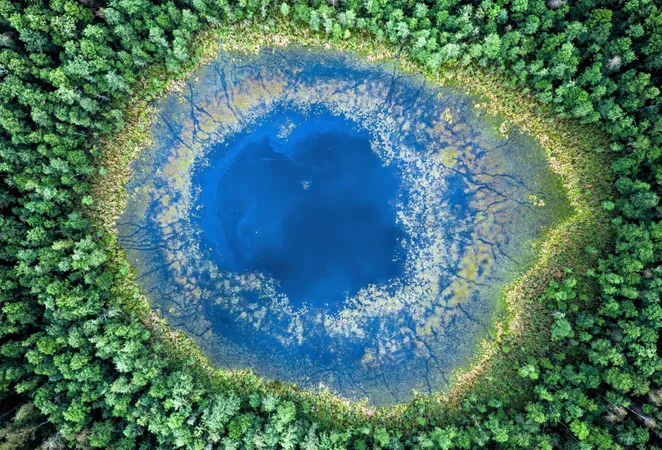
Alarming Decline in Global Freshwater Levels: Are We Facing a Crisis?
2024-11-17
Author: William
Introduction
Freshwater is the lifeblood of our planet—essential for drinking, agriculture, and sustaining ecosystems. However, a new study has ignited urgent concerns among scientists regarding a dramatic drop in global freshwater reserves.
Dramatic Decline in Freshwater Levels
Recent analysis by an international team utilizing data from NASA-German satellites reveals a startling trend: Earth’s total freshwater levels have plummeted since May 2014, with no indications of recovery. This significant loss, equating to about 290 cubic miles (1,200 cubic kilometers)—two and a half times the volume of Lake Erie—has led researchers to suspect that our continents may be transitioning into a persistently drier state.
Research Insights
Matthew Rodell, a hydrologist with NASA’s Goddard Space Flight Center, described the situation as unprecedented. The findings were made possible by the Gravity Recovery and Climate Experiment (GRACE) satellites, which operated from 2002 to 2017, taking monthly measurements of changes in Earth’s gravity to track shifts in water mass above and below the surface. The continuation of this mission through the GRACE-Follow On (GRACE-FO) satellites has provided ongoing insights into this alarming trend.
Global Impact of Droughts
Satellite data highlights that the drop began with severe droughts in northern and central Brazil, quickly expanding to involve Australasia, South America, North America, Europe, and Africa. The 2014-2016 El Niño event exacerbated these conditions by altering global weather patterns, resulting in long-lasting droughts that researchers note have persisted since the event ended.
Consequences of Water Decline
The implications of this decline are dire, with 13 of the most intense droughts recorded by GRACE occurring after January 2015. Scientists are increasingly linking this trend to the impacts of global warming. According to NASA meteorologist Michael Bosilovich, rising temperatures heighten evaporation rates and increase the atmosphere’s water-holding capacity, leading to both more intense precipitation events and prolonged dry spells.
The Vicious Cycle
This 'vicious cycle' raises critical concerns as extreme weather causes heavy rainfall to run off rather than infiltrate the ground and replenish vital aquifers. As cities and agricultural areas become more reliant on dwindling groundwater supplies, the risk of unsustainable extraction rises, producing further ecological and social instability.
UN Warnings and Future Implications
A 2024 UN report warns that communities suffering from severe water shortages are turning to contaminated sources, elevating risks of disease and famine. The predicted depletion of freshwater resources could lead to widespread implications, not only for agricultural productivity but also for global health and security.
Complexities in Climate Predictions
Although scientists suspect global warming is significantly affecting freshwater availability, they emphasize that connecting these dots is complex. Susanna Werth, a hydrologist at Virginia Tech, points out that while trends are evident, uncertainties in climate models can complicate predictions.
Conclusion and Call for Action
As we face this global crisis, the critical question remains: will freshwater levels rebound, stabilize, or continue their downward trajectory? With nine of the hottest years in recorded history aligning with this sharp decline in water resources, experts like Rodell are concerned that what we are witnessing may be just the beginning of a prolonged drought future. The urgency for sustainable water management solutions and adaptation strategies is greater than ever. The clock is ticking, and the implications for humanity could be devastating if action is not taken immediately.
Ongoing Importance of the Issue
Stay informed and engaged—this is a developing story that will impact us all.









 Brasil (PT)
Brasil (PT)
 Canada (EN)
Canada (EN)
 Chile (ES)
Chile (ES)
 España (ES)
España (ES)
 France (FR)
France (FR)
 Hong Kong (EN)
Hong Kong (EN)
 Italia (IT)
Italia (IT)
 日本 (JA)
日本 (JA)
 Magyarország (HU)
Magyarország (HU)
 Norge (NO)
Norge (NO)
 Polska (PL)
Polska (PL)
 Schweiz (DE)
Schweiz (DE)
 Singapore (EN)
Singapore (EN)
 Sverige (SV)
Sverige (SV)
 Suomi (FI)
Suomi (FI)
 Türkiye (TR)
Türkiye (TR)